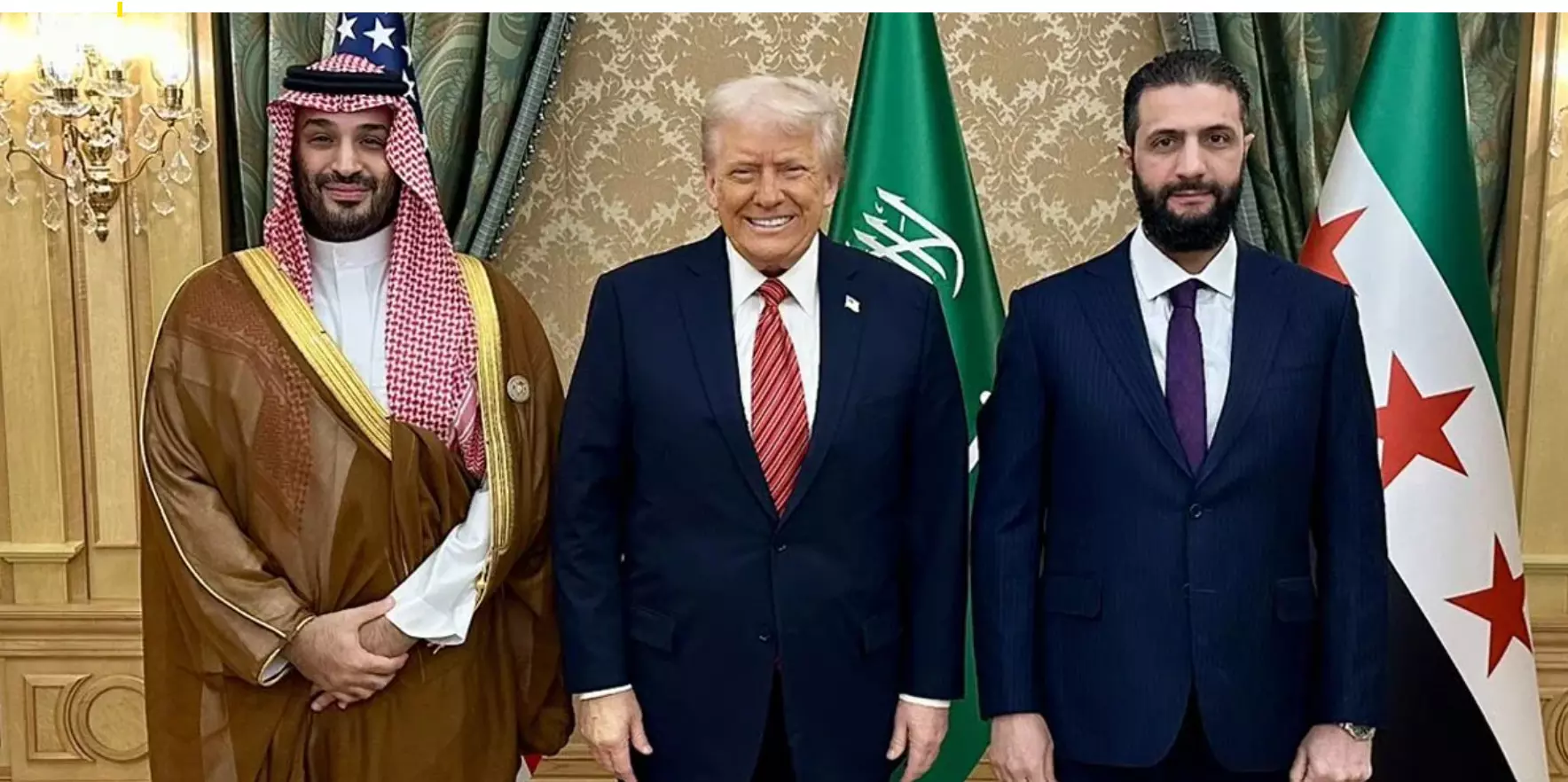Intriguing Volte-Face

Reportedly, at the insistence of Türkiye and Saudi Arabia, the United States under Donald Trump has decided to explore normalising relations with Syria, which is now led by a former al-Qaeda-linked jihadist, Ahmed al-Sharaa. This goes on to reflect how Washington’s strategic amnesia can swiftly whitewash the bloodiest of pasts when convenience demands it. Barely months ago, Ahmed al-Sharaa—formerly known as Abu Mohammad al-Golani—was a man with a USD 10 million US bounty on his head. He notoriously led Hayat Tahrir al-Sham (HTS), a group born out of Jabhat al-Nusra, which itself was al-Qaeda’s Syrian franchise. Designated as a terrorist group by the US, UK, and United Nations, HTS has been held responsible for countless acts of violence, including suicide bombings, executions, and enforcing brutal interpretations of Sharia law. Now, Trump, who is the first US president to meet a Syrian leader in 25 years, hails Sharaa as “a real leader” and “a tough guy with a strong past.” The transition of al-Sharaa from being a pariah to potential peace partner is grotesquely ironic. The Trump-Sharaa handshake was once unthinkable, but now signifies a dramatic volte-face. The image of a smiling Saudi Crown Prince Mohammed bin Salman, Trump, and a rebranded jihadist leader seated in opulent surroundings should trouble anyone still holding illusions about American consistency on counterterrorism. Turkish President Erdoğan, also complicit in arming and financing Sunni Islamist factions during Syria’s bloody civil war, dialled in to lend his blessing. The theatre of “normalisation” is in full swing, cloaked in the garb of humanitarian concern and regional stability.
Trump’s ‘normalisation’ announcement may sound like a bid to alleviate the suffering of ordinary Syrians, 90 per cent of whom are reported to live in poverty. However, one should make no mistake. This approach to truce is less about justice, reconciliation, or restoring democracy. It is more about gaining a strategic leverage. Washington’s decision to ease sanctions is directly tied to Syria’s potential inclusion in the Abraham Accords, which is a US-brokered initiative aimed at strengthening ties between Israel and Arab states. Aiding Syria’s economic recovery is now conditional upon its willingness to normalise relations with Israel—a country it has technically been at war with since 1948. This transactional diplomacy is especially chilling given Sharaa’s past. His Islamist fighters, many of them foreign, took Damascus by force in late 2024, triggering a wave of sectarian bloodletting. Sharaa may have swapped fatigues for suits, but his fundamental ideology remains opaque. His refusal to clearly disavow Sharia rule or confront sectarian violence committed under his watch betrays a calculated ambiguity. Notably, the United States has not always been so forgiving. In 2013, when Sharaa’s forces were committing bombings under al-Qaeda’s banner, US rhetoric was uncompromising. The Nusra Front was painted as a clear and present danger to regional and global stability. Fast forward a decade, and a man who once described the 9/11 attacks as an event “Arab and Islamic people felt happy about” is suddenly a beacon of hope for Middle Eastern peace and reconstruction.
This isn’t the first time the US has courted former enemies turned allies. The CIA once trained and armed Afghan mujahideen—some of whom would later morph into al-Qaeda. History, it seems, is not a teacher in Washington; it is rather a tool to be revised or erased at will. The implications are disturbing. If today’s terrorist can be tomorrow’s president, what message does this send to groups across the world? That the road to legitimacy runs not through peace or democratic reform, but through militarised dominance and opportunistic rebranding? That the US will embrace even its former enemies, provided they are willing to play by Washington’s evolving rules? Trump may frame this as a “chance for greatness,” but for many Syrians and global observers, it is a chilling reminder that American foreign policy often trades principle for pragmatism—and lives with the consequences only when the cameras are turned off.



